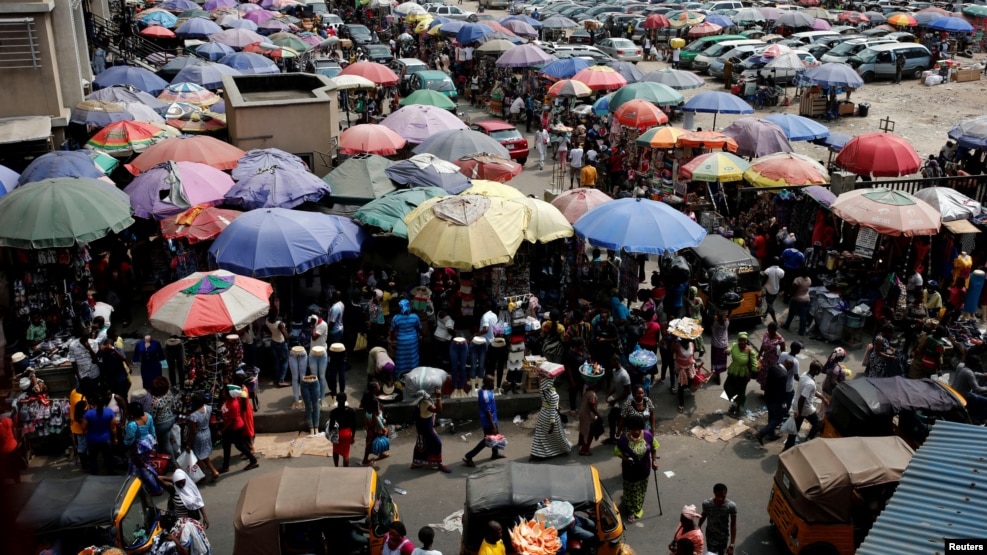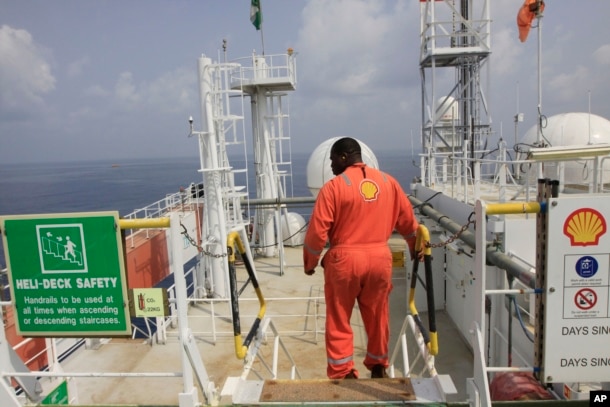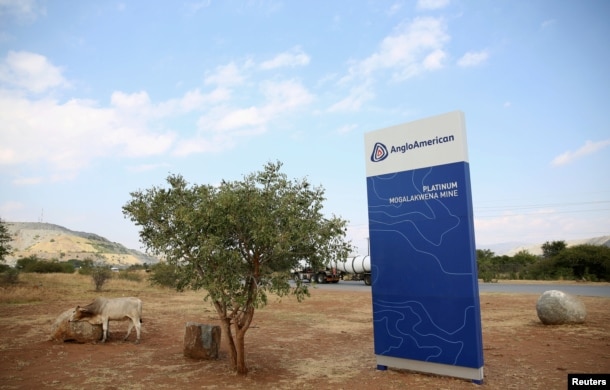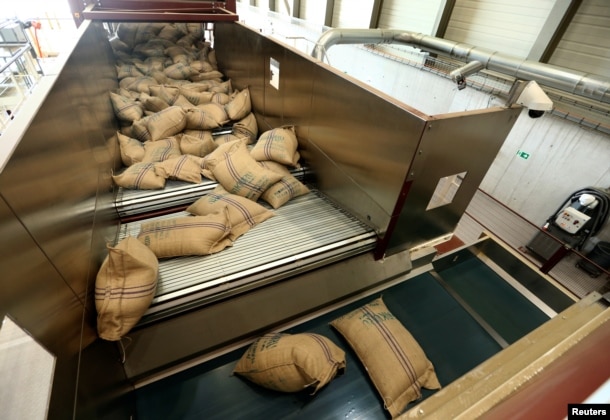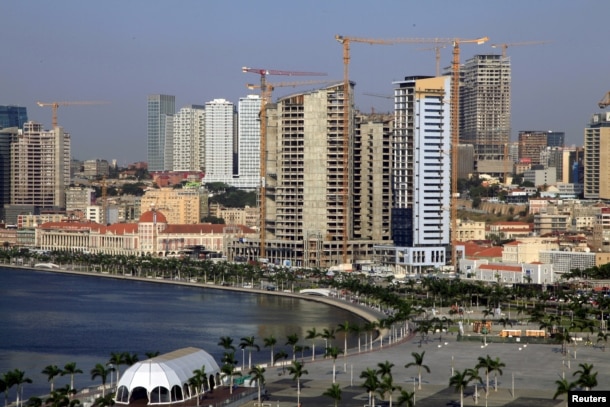Modest Recovery Expected for African Economies After Tough 2016
December 27, 2016 7:15 PM
Anita Powell
A view of the Oluwole Urban Market in the central business district, near Marina in Lagos, Nigeria, Dec. 13, 2016
JOHANNESBURG — 2016 was predicted to be a tough year for African economies, and it delivered.
Traditional economic leaders faltered this year amid a storm of falling commodity prices, unpredictable and destructive weather like droughts and floods across large swaths of the the continent. Slow economic growth in China, a major investor and trading partner, only added to their challenges.
“This year, you’ve seen the two Africas: the commodity exporters going through tough times, while the non-commodity exporters being more resilient,” Nigerian economist Nonso Obikili, who researches Nigerian and sub-Saharan economic trends for Economic Research Southern Africa, told VOA.
FILE - A Shell employee is seen aboard an oil vessel off the coast of Nigeria in this December 26, 2011, file photo.
He says 2016 has been hard on African commodity giants as oil prices fell to lows not seen since the global financial crisis of 2008. Resource-rich economies like Nigeria, Angola and Mozambique foundered. Nigeria battled its highest rates of inflation in 11 years.
Politics also took their toll this past year — notably in South Africa, which has seen growing tensions over scandal-plagued President Jacob Zuma. The economy in the third quarter followed Zuma’s descent in popularity, falling from 3.3 percent in the second quarter to a near-standstill of 0.2 percent growth in the third quarter, according to the nation’s statistics agency.
FILE - A cow is seen near the AngloAmerican sign board outside the Mogalakwena platinum mine in Mokopane, north-western part of South Africa , Limpopo province, May 18, 2016.
Ghana's economic woes contributed to President John Dramani Mahama's defeat in December elections. He will be a one-term president. And falling commodity prices helped turn an election in the copper-rich nation of Zambia into a bitter contest, with the unsuccessful challenger running on a promise to fix the ailing economy.
And there were some other surprises. Mozambique’s parliament uncovered at least $1.4 billion in undisclosed government debt that the World Bank estimates halved the nation’s economic growth rate and dropped foreign investment by about 17 percent.
Meanwhile, nations conventionally seen as being resource-poor, like Ethiopia and Rwanda, maintained higher growth rates — as high as an estimated eight percent in agriculture-heavy Ethiopia, despite the nation’s worst drought in decades — according to the World Bank.
That growth, said World Bank Ethiopia country director Carolyn Turk, “is impressive especially compared to previous drought situations which often resulted in economic contraction.”
Martyn Davies, managing director of emerging markets and Africa at Deloitte, says these successful African economies focus on expanding and diversifying their economies to attract foreign investment.
He said Kenya remains a regional leader.
FILE - A container of green coffee beans from Ethiopia is unloaded at the Nespresso production plant, part of food giant Nestle, in Romont, Switzerland, Aug. 30, 2016.
“Tanzania is looking somewhat more competitive, largely because of global shifts," he added. Davies said that Ethiopia also has strong growth trajectory despite political issues in the country.
He also said that Rwanda, which he described as an agile economy, is one of the easiest places to do business in Africa.
Major economic institutions predict some improvement in African economies in 2017 as global commodity prices are expected to rise, but Obikili says commodity exporters also need to improve their economic policies.
FILE - A general view Luanda, Angola's capital is seen in this picture taken May 15, 2015.
“For Nigeria, Angola, Mozambique, getting the basics right in 2017 is very, very important. Getting back to a functional monetary market is very important. Getting back to credibility in terms of the debt issue is very important. So if they get the basics right, then there is a possibility that at least things will start to pick up in 2017,” he said. “... If they don’t, then it might get worse.”
But Davies is less optimistic that resource-dependent countries can change tack at this point.
“I’m afraid now, from a policy perspective, it’s all too late,” he said. “And African economies, by and large, many of them remain price takers rather than price setters. And diversification is essentially about the the skills you have in our economy. Innovation, wealth creation, diversification ultimately follows people. If you’re not creating domestic talent or at least attracting foreign talent into your country, you’re effectively going nowhere.”
Governments do appear to be listening.
Nigerian president Muhammadu Buhari, for one, has made repeated pledges over the past year to end the country's oil dependence. But diversification doesn't happen overnight. Economists say it may take a year, or more, for Nigeria to rebound from 2016, and as much as a generation to really break free from crude.
Modest Recovery Expected for African Economies After Tough 2016



 and they got all their smilies from the coli lmao.
and they got all their smilies from the coli lmao.
 I say we leave east Africa to fend for themselves
I say we leave east Africa to fend for themselves





